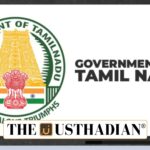Driving Forward Inclusive Governance
Tamil Nadu Enhances Disability Representation in Local Governance: In a landmark step towards inclusive local governance, Tamil Nadu Chief Minister M.K. Stalin has introduced two important Bills in the State Assembly to ensure the representation of persons with disabilities (PwDs) across all levels of local administration. These amendments reflect the state’s commitment to the UN Convention on the Rights of Persons with Disabilities (2006), reinforcing India’s pledge to uphold global disability rights.
Urban Local Bodies to Include More PwD Voices
The first Bill proposes an amendment to the Tamil Nadu Urban Local Bodies Act, 1998, aiming to nominate differently abled individuals to town panchayats, municipal councils, and corporations. Presently, only 35 PwDs are elected representatives in urban local bodies. This Bill will allow for the nomination of 650 PwDs to these bodies, providing them with formal positions—though without voting rights. Larger municipal councils (with over 100 members) will be required to nominate two persons with disabilities, appointed by the Director, to improve inclusive representation.
Inclusion in Panchayat-Level Governance
The second Bill, introduced by the Rural Development Department, seeks to amend the Tamil Nadu Panchayats Act, 1994, allowing for the nomination of one PwD in every village panchayat, panchayat union council, and district panchayat. This could result in the appointment of 12,913 members at the village level, 388 at the union level, and 37 at the district level, vastly improving current levels of participation and ensuring that the differently abled are active participants in rural development and local decision-making.
Roles, Benefits, and Limitations for Nominated Members
Nominated PwDs will receive honoraria, allowances, and be entitled to participate in council proceedings like elected councillors. However, their participation has certain limits—they will not have voting rights, and their tenure is directly linked to the life of the elected council. Should the council be dissolved, their representation also ends. Despite this, the move significantly boosts the visibility and contribution of disabled citizens in local governance structures.
STATIC GK SNAPSHOT
Tamil Nadu Enhances Disability Representation in Local Governance:
| Topic | Details |
| Bills Introduced | 2 (Urban & Rural Inclusion of PwDs) |
| Introduced By | CM M.K. Stalin, Tamil Nadu Assembly |
| Urban Law Amended | Tamil Nadu Urban Local Bodies Act, 1998 |
| Rural Law Amended | Tamil Nadu Panchayats Act, 1994 |
| Urban Nominees Expected | 650 persons with disabilities |
| Rural Nominees Expected | 12,913 (village), 388 (union), 37 (district) |
| Voting Rights for Nominees | No |
| Alignment With International Law | UNCRPD 2006 |
| Key Benefit | Representation + Honoraria/Allowance |
| Static GK Relevance | Disability laws, Panchayat Act, Urban Governance |








